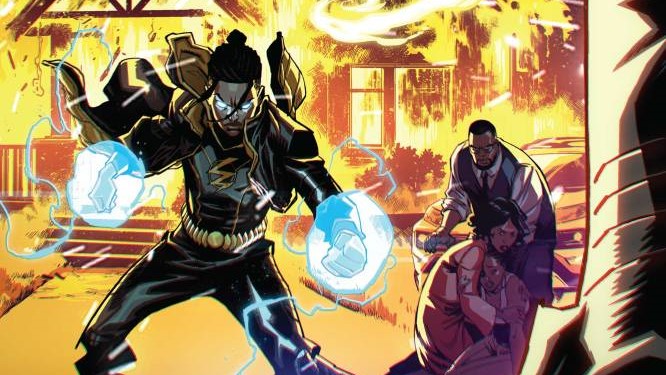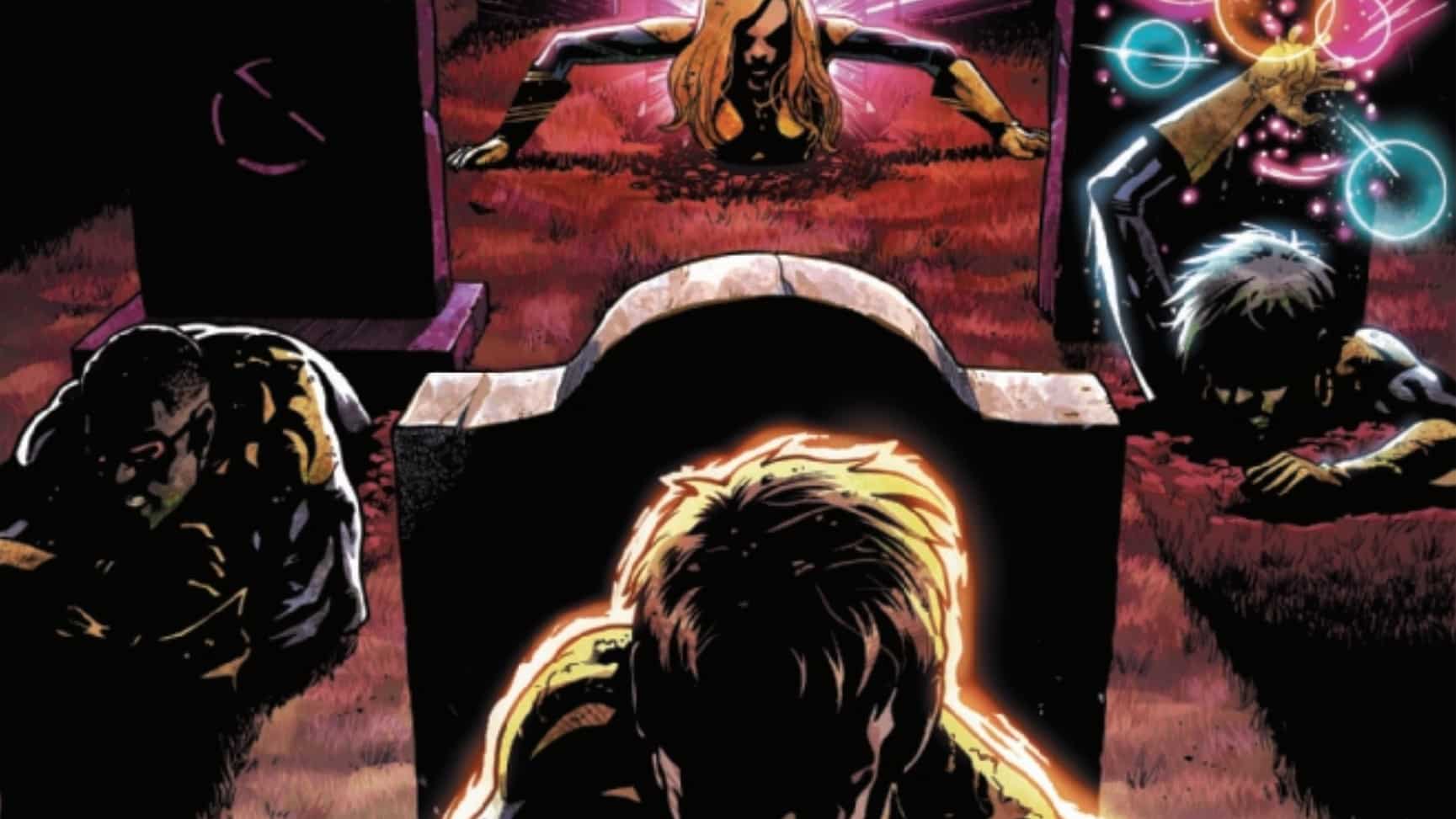The Milestone relunch continues in Static: Season One #2 by Vita Ayala, Nikolas Draper-Ivey, ChrisCross and Andworld Design.
Years ago, when I was a school administrator, l tried to convince a student’s mother to bring her child to see a doctor. I failed miserably. I shouldn’t be surprised – it was the third time I was asking after all. But still, I was disappointed. Frustrated.
Why wouldn’t she listen?
I was, of course, asking the wrong question. Instead of asking “why won’t she listen to me,” the real question is “why should she listen to me?” I was not a doctor, nor a family member. Why should my word carry any weight? Why should she trust me?
Static #2 is all about trust: What happens when trust is present, when trust is lost, and when trust is never there to begin with. We join the action in medias res, from the fight that ended last month’s charter issue. Quick thinking and quick action allow Static to make relatively quick work of his overextended opponent. His trust in what he was taught saved the day.
But even if the day is saved, repercussions still persist. What I appreciate about Static is how much time the Vita spends with repercussions of actions. His parents just saw him activate his powers for the first time. Now what? Do his parents trust him to manage his gift? Trust scientists to help him (noting how scientists have “helped” Black people before)? Trust anyone?
Can he even trust himself?
I’m a fan of the writing here. It’s clear. It’s concise. It’s honest without being haughty. Then dialogue doesn’t try (too) hard to make kids sound cool; it prioritizes substance over style (unlike, say, Reggie Hudlin’s criminally bad writing in this week’s Icon and Rocket’s debut issue, which I found distracting and quite frankly insulting. I probably sound like Icon here, ironically. I digress.)
These questions of trust are extended to the extended cast. Darius, the all too eager journalist-in-training, betrays trust with Static, only to have that trust rebuilt as he listens to the horrors the villainous Holocaust (what a name) brought to the doorsteps of impressionable of an impressionable, lost young child.
The issue even features a cameo from Hardware, the tech guru who trusts Static enough to grant him access to his lab (and whose Milestone reintroduction is a few weeks away.) Unfortunately that access came with a cost…a cost I’m sure we’ll see paid in the next issue.
Static is doing exactly what it needs to do: providing character history and character depth. Providing multiple motivations for multiple heroes, villains, and everyone in between. Nothing about this issue is spectacular to be clear (see X-Men #19 for my definition of how to spectacularly set up a character), but it doesn’t have to be. It just has to be competent and interesting, and Vita is excelling at that. There’s a depth, complexity, and nuance that’s missing from Static’s Marvel analogue, Miles Morales. Unlike Brooklyn’s Spider hero, I’m invested and interested to see the story expand. I want to read more. I trust their interpretation of the story.
I never did convince that parent to see a doctor. It was not my place; I hadn’t earned that trust. As frustrating as that is (and, as I think about what she and her family are doing – or not doing – during the pandemic, how deadly that might be) it’s also sadly understandable. People, especially Black people, have every single reason not to trust systems. Cynicism is warranted.
I’m glad that I can leave that cynicism behind when I read Static. It’s the escape from all of this I need. This system of characters and consequences works. I believe – I trust – I’ll enjoy the ride from here on out. I trust you’ll feel the same too.
A proud New Orleanian living in the District of Columbia, Jude Jones is a professional thinker, amateur photographer, burgeoning runner and lover of Black culture, love and life. Magneto and Cyclops (and Killmonger) were right.
Find more of Jude’s writing here.






